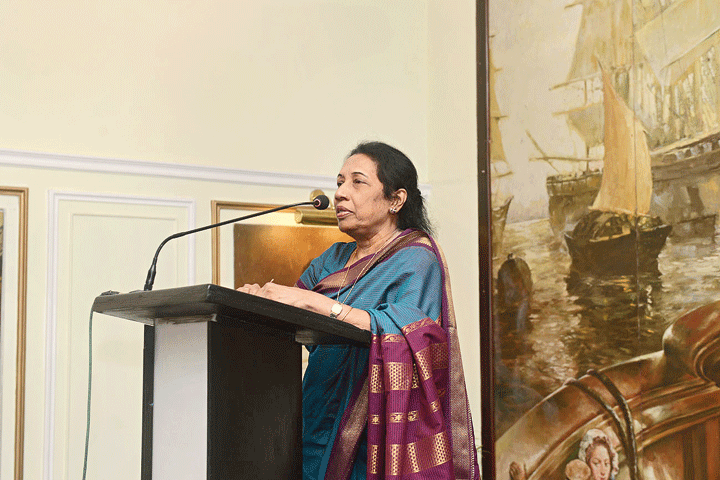Not only Peter Handke. The Nobel has often been given to people with questionable politics.
Handke, the Austrian writer who received this year’s Nobel Prize in Literature, was not congratulated by everyone. His support for former Yugoslav President Slobodan Milosevic, who was charged with genocide, made PEN America express “deep regret” at his choice. In 2014, Handke had called the Nobel a “circus” and called for its abolition.
There were two Literature Nobels announced this year — Handke, for 2019, and Polish author Olga Tokarczuk, for 2018 — because the prize could not be announced last year as the Swedish Academy was engulfed in a sexual assault scandal.
The business of the Nobel has not always been noble. This was the subject of a talk delivered by Krishna Sen, former professor of Calcutta University, at Bengal Club on October 15. The Bengal Club Library, which organised the talk, also inaugurated a section in the library with works that were awarded the Literature Nobel.
Sen took a walk down the timeline, starting with 1901, Nobel’s first year. She insisted there was muddiness from the start, “only it was not spoken of” so much then.
Her talk was about the Literature Nobel as the other categories were not her domain, said Sen, author of several books and a publishing consultant.
The choices for the prize, if not downright controversial, were quite often strange. In 1901, Sully Prudhomme from France got the first Literature Nobel, when Leo Tolstoy and Mark Twain were writing. Tolstoy would be nominated for the prize every year from 1902 to 1906, and also for the Nobel Peace for three years, but would not be awarded once. But who remembers Sully Prudhomme?
That makes us question not only the choice of the candidate, but also the significance of the award.
There were both acts of omission and commission that smelt of bad politics. Sen referred to Benedict Anderson’s 2013 essay on the Nobel titled The Unrewarded, which had condemned the prize as discriminatory in the strongest words. It reflected “national politics, religious cliques, double standards, racism, chicanery and even cheating,” Sen said, referring to Anderson.
But it was not even consistently discriminatory, Sen said. For example, the prize ignored Henrik Ibsen, whose plays are still performed the world over, but did go to Pablo Neruda and Gabriel Garcia Marquez
Strange business. Particularly the business part.
“The biggest smelly fish in the packet was Alfred Nobel,” said Sen. Nobel, the inventor of dynamite, instituted the prize.
It was prompted by the thought of how he would be regarded by posterity after a newspaper, mistakenly reporting his death, said “Le marchand de la mort est mort” (The merchant of death is dead). Nobel had also created a gun manufacturing empire, which included Bofors. Nobel is the most famous of Bofors owners.
Later, people within the Swedish Academy held deadly views. In 2008, Horace Engdahl, the permanent secretary of the Nobel prize jury, angered the world by claiming: “…Europe still is the centre of the literary world.... The US is too isolated, too insular. They don’t translate enough and don’t really participate in the big dialogue of literature.... That ignorance is restraining.”
But Sen said that still the Nobel occupies a certain place in our lives, sometimes literally.
She referred to an Amitav Ghosh piece called The Testimony of my Grandfather’s Bookcase, in which Ghosh spoke about the ubiquitous bookcase in educated Bengali middle-class homes where the rows would be lined with what would look like an eclectic collection of books from the world over, but would be revealed as Nobel winners’ works on closer inspection.
“The details may be gory, but the Nobel still establishes the idea of universal literature,” Sen concluded.
Only history, which is full of ironies, will tell.











